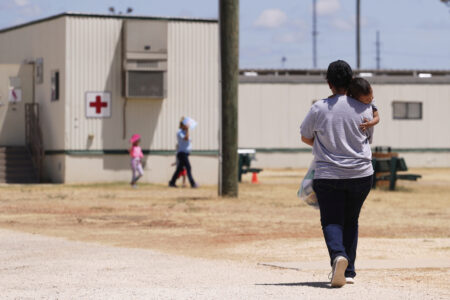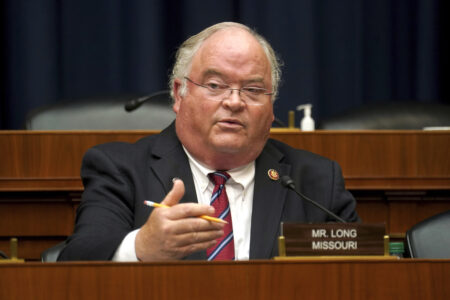Hollis ‘quintessential farmer’ died earlier this month
In 1930, the year Carroll Sumner Spaulding was born, the country was reeling from the October crash on Wall Street that overnight made paupers of millionaires and left scores of farmers, plumbers, bankers, lawyers, factory workers, teachers and others without work.
Earlier this month, when Spaulding died at age 79 following a two-year battle with prostate cancer, the economy was in trouble again, and economists were comparing the collapse of the world monetary markets to the Great Depression.
Indeed, many in this former agricultural community have lost income or jobs over the past several years, the result of the deepening recession. But it’s not the same town, or world, where Spaulding came of age.
Today, housing developments occupy what was once farmland or open space, and neighbors, who live in homes many times larger than the old farmhouses, are not likely to work in town or know who lives next door or across the street. Nor does community life revolve around the Congregational Church or high school basketball games, once the centers of social life.
Spaulding was a fourth-generation dairy farmer, and in 1986, one of the last dairy farmers in town to sell his land to a developer. He kept about 26 acres, enough to build his home and keep a large garden and haying fields.
He was still operating a haying business when he became ill two years ago, and he continued to tend his vegetable gardens, attend tractor pulls at the state fairs and maintain the stone walls on his Bell Lane property.
“He was the typical farmer. He never said a word, and he fought with dignity and grace,” said Barbara Townsend, Spaulding’s partner and the former Hollis tax collector. “I think that it helped that he had animals. Animals live, have illnesses, die. He was dealing with life and death all of his life.”
In the tradition of the Yankee farmer, Spaulding worked hard, made do and did without, much the way his father, grandfather and great-grandfather had done before him.
A farmer rose before the sun, milked his cows, consumed a hearty breakfast and went back outside to tend the chickens, collect the eggs, plant, weed and harvest enough fruit and vegetables to feed his family and supply the small local trade, mostly neighbors.
Spaulding’s father carried wood into the kitchen every day to feed the cook stove where his mother prepared the family’s meals, served on a schedule as dependable as a clock.
Back then, farmers had two sets of clothing, one for outside work, the other for inside, and to the end of his life, Spaulding continued this practice, changing in the area between garage and kitchen every time he came in from his fields.
He grew up in a time when children knew that if they misbehaved out of sight of their parents, they’d hear about it later.
And from an early age, with encouragement from the 4-H Club, he learned to care for the cows and chickens and to grow fruits and vegetables.
A member of the 1948 Hollis High School graduating class, Spaulding was a star basketball player.
He was exposed to the sport early. After he was born, his parents, who coached basketball, brought him to practices in the gym on the second floor of the Town Hall, gently tucking him into a laundry basket placed by the court.
As a boy, Spaulding showed promise as a farmer.
When he was 12, he traveled to Chicago by himself to receive a national 4-H Club gardening award. Two years later, during a trip to Springfield, Mass., to receive another 4-H award, this one for gardening and his prize heifer, he found a lump under his pillow at the hotel where he was staying.
The lump turned out to be a wallet stuffed with $650 in bills, a fortune in 1944, which he promptly turned over to the hotel management.
Afterward, the incident was written up in the local newspaper, a clipping now preserved in a family album.
“He was happiest out riding around on a tractor, chopping his own hay,” said Spaulding’s son, Jeffrey.
Spaulding loved tractors. As a boy, he couldn’t stay away from the John Deere dealership near his family’s home, located where his own garage now stands.
“He would spend hours there. He was fascinated with anything that had to do with a tractor,” said Townsend, who was Spaulding’s partner for many years.
Jeffrey Spaulding, who chose the construction business over farming, said his father was disciplined, practical and tireless.
“He understood that things needed to be done, and he was always three steps ahead of what he was doing,” Jeffrey Spaulding said.
Indeed, during the seven years after he bought his parents’ farm, Carroll Spaulding worked seven days a week, with no days off.
“He had to be a vet, a carpenter, a plumber, a mechanic, an electrician. You’ve got to do it, or you have to pay somebody,” Jeffrey Spaulding said. “He did a lot of hard work in his life.”
Spaulding was also an inventor. He designed a baled-hay elevator in 1958 to make his job easier, and he was eager to share his invention with others, or sell it.
“I always considered Carroll to be the quintessential New Hampshire Yankee farmer,” wrote a family friend in a condolence message to Townsend. “He embodied the virtues of honesty, hard work and straight talk, along with just plain old-fashioned common sense, thriftiness and human decency.”
Dick Marvell, a lifetime friend who moved to town when he was a teenager, described Spaulding as an “excellent farmer.”
“Most of everything we did together was work of some sort,” Marvell said, recalling how even late in life, the two friends “did dumb things” like moving a two-car garage by themselves.
“After it was done, we laughed and joked and said we should have taken it to ‘Funniest Home Videos.’?”
The friendship between Spaulding and Marvell was long and deep, and typical of men of their generation who would give each other the shirt off their back without ever revealing what was held beneath the breast pocket.
But Marvell remembered two exceptions. One was after Spaulding lost his son, Steven, 30 years ago. The other was during a visit Marvell made to see his friend five days before his death.
“He lost a son a few years ago, and I guess it was a little private meeting, a little talk we had afterward down in my mill yard. We spent probably an afternoon just talking about it,” Marvell said. “I had a similar meeting with him last Sunday. We sat there and talked, and it was a different kind of meeting, more like when he lost his son.”
Frank Whittemore, an owner and operator of Brookdale Fruit Farm, said he and Spaulding were “fellow farmers practically all our lives.”
“He was a good farmer, a great worker, and on the volunteer fire department as I was,” Whittemore said, recalling how, 40 years ago, the two stood together on the roof of a burning house near the town common.
“We fought many fires together,” Whittemore said.
In those days, when the alarm rang, Whittemore would jump into the tank truck he used for spraying – and fighting fires – and rush to the scene.
So much has changed since then. The dairy farms are gone. The population has grown to more than 7,000. And most people don’t work in town.
“It’s a different, different world. The folks we grew up with lived here all their lives. There were about a thousand people, and everybody knew everybody else,” Whittemore said. “If you had a problem, neighbors helped each other out. Now, there are no more dairy farms, and his death is the passing of an era.”
A celebration of Spaulding’s life will be held at the Lawrence Barn next month.
Hattie Bernstein can be reached at 673-3100, ext. 24, or hbernstein@cabinet.com.



